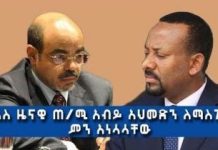Session one:
Introduction:
18th May 1991, Somaliland was built in Burao capital city of Togdheer region, that day Somaliland tribal agreements were selected Abdurrahman Ahmed Ali (Tuur) as the president of Somaliland and Hassan Essa Jama as the deputy president of Somaliland, as the agreement mentions their leading term was only two years, after clan conflicts arising there was a second conference held in Borama capital city of Awdal region, and it was selected Mohamed Ibrahim Egal as the president of Somaliland and Abdurrahman Aw-Ali as the deputy president of Somaliland, but the country faces again armed clan conflicts (civil war), but Somaliland run as stable country from 1998 and in 2000 Somaliland was held national referendum which Somalilanders vote the national constitution which states that Somaliland gates a state of democracy. In late months of 2002 Somaliland was held democratic elections which was elected local councils and then in 2003 April 29th, Somaliland presidential election was held in the country, so our country promotes as a democratic country, this democratic issue narrates that each local council, representatives, president and other members are arising from political parties, but these questions have arisen now.
- Why Somaliland political parties handle their campaign within tribal?
- Why Somaliland educated youth elect and support the parties in terms tribalism?
- What creates the tribal coalitions in political parties?
- Do tribalism activities, campaigns match the democratic style of Somaliland election?
- What alternatives we have to leave away from tribal electoral and build well suit nation since we fail the democratic political parties?
- What are the main reasons which mixed the youth academics and tribal issues?
- What is the reason behind women’s tribal support to political parties?
- What positive solutions we have to leave the tribalism?
- Is there an exit?
- What are the results we gain Somaliland political decline?
Apart from the above questions, these articles highlights, creates, and discuss tribalism and Somaliland Elections; solving the above questions one by one, igniting with their priority let’s to say:
Points of argument:
- Why Somaliland political parties handle their campaign within tribal?
Leave-taking from a state to another better one, there must be foretelling groups who forecast the community an alternative and well environment, though Somaliland was sendoff the tribal style of their leadership without anticipatory forum, according to our primitive culture of leadership pillars who based on tribal ideology, every clan had an elder who leads them to their offspring status, those leaders lead only their clans and whom they share agreements based heredity, such as brotherhood clans, settlement small families, etc. while Somaliland leaves that status there were no mandatory actions which built to survive from the primitive stage and to new one, meanwhile the whole nation was like that era, the political parties creations was supposed to work same as the primitive culture of leadership, shareholding, and alliance, and also the parties built a small members who each will bring his/her tribe, the parties had no political pillars, principles, and ideologies because the part is based on that their mastermind is the leader, while others are executives or deputies.
Finally, the reason is that political part base was tribal idea no other alternative ideologies, and this brings that parties handle their campaign in tribalism (in my point of view) yours is important.
- Why Somaliland Educated Youth Elect and support the parties in terms of tribalism?
Seeking an absolute answer of why Somaliland Educated Youth Elect and support the parties in terms of tribalism? Just like the other Somali community buildings Somaliland society foundations is based on clan issues and styles, this creates constant tribalism, so the answer is as below:
- Cultural routes:
Somaliland clan culture encourages the whole community to be constant in tribalism because the partnership of blood or blood share (Mag) makes a stiff role to the educated young use of tribalism; we know that there is an insurance of clan members like wound or injury payments, contributions, etc.
- Staffing strategy:
National staffing strategy is based on tribal, because if there is no upkeep from your traditional elders, ministry line administrators, governors who are in your clan or family or sub-clan; it is impossible to find a job, although Somaliland academics are widen but our executives are nominated tribalism, this tribalism leads them to hire and recruit the middle, lower staff same as them. Since HR policy is to staff the right person to the right position in right time, but Somaliland staffing strategy is not suit that.
With the reference of tribal staffing, tribal staff promotions and tribal incentives Somaliland educated youth become tribal developers because when the staffing right loses by clan difference, every educated supports his/her clanship candidate. There is no argument that clan based political parties are the eradicating forces which pushes us our primitive styles of leadership, but idleness (jobless) forwards each academic to the use of clanship support, summing up this point Somaliland academics are yet yup and illiterate.
- Curriculum weaknesses:
Tribalism empowerment is a great problem which is ought to our curriculum to respond and build possible and positive solutions, instead curriculum is the tool or policy which solves national glitches, but Somaliland national does not respond that hatches.
- Lack of justice:
Injustice is the biggest one which promotes tribalism and makes the stat clan empowerment day by day, so the injustice performs the loss of equal sharing and removes the community, gender and young equity, a nation without justice is negligible by their enemies such as tribalism, stratification and lack of role respect.
Session one
Continue
By Mohamed Omar Dhagax






























